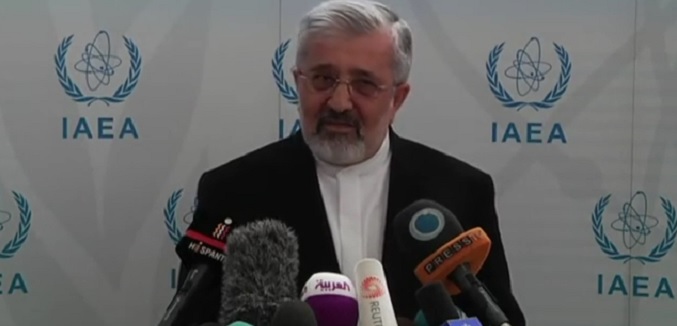An Iranian news site dedicated to promoting the country’s nuclear program published an essay on Tuesday by Ali Asghar Soltanieh – the country’s former ambassador to the U.N.’s nuclear watchdog (IAEA) – pushing back against a recent op-ed by Brookings Institution Senior Fellow Kenneth Pollack:
Reviewing the article “The Right Way to Press Iran”, by Mr. Kenneth M. Pollack, one can easily discern an attempt to mislead the P5+1, and specifically the United States, to move towards a path which leads to deadlock and possibly a dangerous confrontation. There is serious doubt about the intention behind the article, since it appears at a historical juncture in time where a window of opportunity for peaceful, negotiated solution is open.
The Soltanieh piece ran through relevant provisions of the Non-Proliferation Treaty (NPT) applicable to normal nuclear states, which among other things describes regimes of controlled inspections.
Links to the piece were tweeted and retweeted by social media accounts linked to the regime – including by an account linked to Iranian President Hassan Rouhani – but it is not clear that it responds to Pollack’s proposal.
Pollack acknowledged that the inspection regime he envisioned was not routine but noted that Iran had already accepted that it would not “be treated as a normal nuclear power” until the expiration of whatever comprehensive deal is worked out:
International inspectors must be a constant presence at Iran’s nuclear sites and they need to be able to go anywhere and see anything — immediately and without being blocked by the government. Iran has already agreed to abide by the Additional Protocol to the Nuclear Nonproliferation Treaty, which does establish somewhat more expansive inspections and monitoring, but given Iran’s history of lying about its nuclear program, America needs what it had in Iraq: the right of the inspectors to have completely unfettered access.
Trita Parsi – the founder and president of the National Iranian American Council, a lobby that was slammed last summer by the chairman of the House Foreign Affairs Committee for promoting “propaganda put out by the Iranian regime” – had described Pollack’s suggestions as “unwise”:
Ken Pollack is a friend & great guy, but his NYT oped is unwise. A recipe for failure with #Iran imo http://t.co/UAFm2YCF6A @hmajd #IranDeal
— Trita Parsi (@tparsi) May 6, 2014
[Photo: HispanTV / YouTube]




